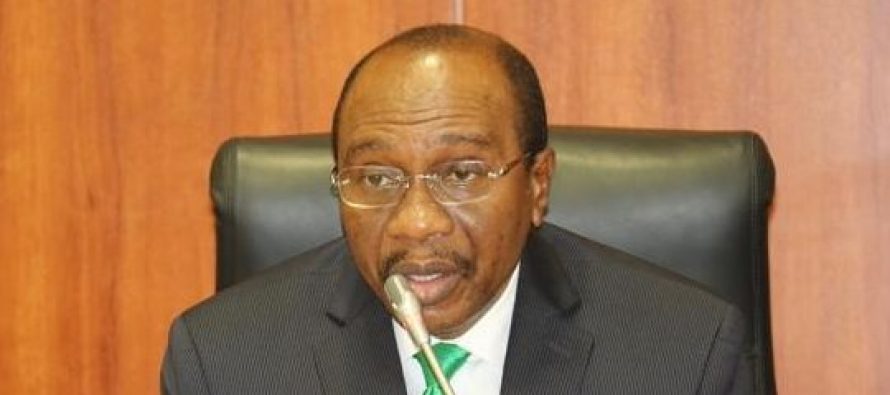The reality of the Nigerian economic situation reached an alarming height with the recent disclosure by the Minister of Finance, Budget and National Planning, Zainab Ahmed at the recent budget performance briefing that the federal government spent N1.93 trillion on debt servicing.
The amount was about 20 per cent higher than the retained revenue pegged at N1.63trn for the same period.
- NIGERIA DAILY: How Kano Traders Lost N200m Textile, 300 Shops To Market Flood
- Lack of population data causing problems in Nigeria – Edwin Clark
The data also showed that debt servicing alone took as much as 41 per cent of the total spending, while personnel cost (including pensions) was approximately 27 per cent or N1.26 trillion, leaving a meagre N773.6 billion for capital expenditure (CAPEX) or 16 per cent.
The continuous rise in energy costs in the global market may have pushed subsidy on Premium Motor Spirit (PMS) for 2023 to an estimated N6.72 trillion, Ahmed said during the MTEF and FSP presentation.
As if the debt service revelations were not enough, the National Bureau of Statistics (NBS), says Nigeria’s headline inflation rate increased to 19.64 per cent on a year-on-year basis in July.
Prince Semiu Adeniran, the Statistician-General of the Federation and Chief Executive Officer, NBS said the increase in inflation was caused by an increase in food index attributed to the disruption in the supply of food products, an increase in the cost of transportation arising from the higher cost of energy, an increase in import costs as a result of currency depreciation as well as a general increase in the cost of production.
For most economic experts, it is ironic for instance that Africa’s largest economy and its biggest hydrocarbon producer has suddenly become a net importer of refined petroleum products.
With all its four refineries in Port Harcourt, Kaduna and Warri down, Nigeria has continued to import refined products from overseas making it lose the benefits of current crude price rally arising from the Russia – Ukraine war.
Part of the distressing recent revelations was the fact that within the period under review the NNPC recorded N2.39 trillion as gross revenues from oil and gas receipts, but paid out a whopping N2.6 trillion in subsidy claims. This was even as an estimated N1.59 trillion was used to cover part of the subsidy costs in the last six months, leaving an outstanding of N1.01 trillion to be recovered from July 2022 proceeds in August.
To compound the situation, all known fiscal buffers including the Excess Crude Account (ECA) that the government naturally relied upon in times of distress have virtually been eroded leaving only the internal and external borrowing windows as the only low hanging fruits for the government to run its business.
The alarm triggered by these developments led the International Monetary Fund (IMF) into issuing a warning to the Nigerian government last July to urgently restructure its economy as it became apparent that government revenue underwhelmed debt servicing obligations in the first four months of the year if it should avoid a debt default.
The continued fall of the naira against the dollar has posed a threat to aircraft acquisition plans by domestic airlines in Nigeria with aircraft orders worth over $4.7 billion hanging.
The major threat to the survival of domestic airlines today is the scarcity of the dollar as the business is completely dollar-denominated.
Airlines carry out maintenance of their aircraft, buy spare parts, among others, in dollars and also sell their tickets in dollars.
Heated economy: CBN and its heightened actions
Though some Nigerians are pointing accusing fingers at the CBN, expecting that the apex bank will make certain dollars available to the economy, CBN is taking more giant strides in fiscal and monetary policies to tame the ceiling-height inflation.
Recall that the CBN introduced restriction of forex to fund imports of about 45 items that can be produced in-country among several efforts by the apex bank to ensure that forex remains readily available to legitimate end users in Nigeria.
CBN Governor, Godwin Emefiele recently disclosed that non-oil exporters have ramped up the repatriation of export proceeds through the Investors and Exporters (I&E) window of the foreign exchange (forex) market in response to the RT 200 programme introduced by the apex bank.
The bank just on 17th of August raised the interest rate on intervention funds provided to some sectors from 5 per cent to 9 per cent while tightening its process to ensure more loan repayments.
“All intervention facilities granted effective July 20, 2020, would be at 9 per cent per annum, while all existing intervention facilities granted prior to July 20, 2020, would be at 9 per cent with effect from September 1, 2020,” the CBN circular noted.
However, as inflation zoomed past 19% in July, the apex bank directed deposit money banks to pay savings deposit account holders an interest of 30% of the MPR from 1st August 2022, which is an incentive of more people to save money, thereby subtly mopping up cash in circulation, a means that can tackle inflation, according to economists.
As the CBN tries to ensure a balancing of the supply and demand equation of the forex supply chain, while taking other anti-inflationary actions, the harder it would appear, the chain is proving to hold.
What apex bank, govt can do – Experts
Chief Executive Officer, Centre for the Promotion of Private Enterprises (CPPE), Dr Muda Yusuf, in his response said “We can stratify the challenges of the economy into four categories. The macroeconomic challenge; which has to do with inflation, debt crisis and exchange rate. The structural challenge, which has to do with ensuring productivity and competitiveness in the economy, driven largely by the quality of our infrastructure.”
He said the third challenge is one of security which has become a major problem now because it’s affecting productivity in the economy especially in agriculture. It is affecting our ability to attract investment from countries and also affecting domestic investors from investing.
On the global factor, Yusuf said Nigerians were yet to recover fully from the COVID-19 pandemic when the Ukraine -Russia war that is threatening the global food supply chain broke out thus causing disruption in the energy sector.
He argued that in order to tackle the macro economic issue, the government needs to tackle inflation by dealing with the problem of productivity.
In this regard, Yusuf stated that the government needs to revive infrastructure, so that the level of competitive output can be improved and increased. “We need to fix infrastructure to be able to support output production and employment that is critical in bringing down inflation.
“Another thing we need to do is to reduce inflation and moderate the rate at which the CBN finances the government deficit which is extremely high at the moment. The cumulative figure now is about N15 to N19 trillion. A major component of inflation is food inflation and insecurity is the biggest problem contributing to food inflation.
“If we have not had this kind of disruption to our agric sector, the situation would not have been as bad as this.”
He however, noted that the attendant risks and damage to the economy of the greenback scarcity cannot be overemphasised. “Imagine an economy whose manufacturing sector is largely dependent on foreign raw materials and driven by implements and machinery, including spares that are substantially sourced from overseas. This presupposes that payments for such factors of production are made wholly with foreign exchange drawn mainly from the nation’s stock of foreign reserves.”
According to him, a nation’s foreign reserves grow largely from the volume of exports, either of goods and services produced in-country, or like the case of Nigeria and other Organisation of Petroleum Exporting Countries (OPEC) countries, from oil exports but Nigeria is disadvantaged at the moment.
“Now we talk of oil thieves carting away over 400,000 barrels of oil every day; we are faced with bandits and herders killing and scaring farmers from going to their farms; we are today contending with kidnappers collecting N100 million per hostage before they earn their freedom,” stated Yusuf.
In his reaction on the grim outlook for the Nigerian economy, Chairman, Apapa branch of the Manufacturers Association of Nigeria (MAN), Frank Onyebu noted “To say Nigeria’s economy is in dare straits is an understatement. The economy is actually in comatose and needs a miracle to revive.
He believes Nigeria should think more of production rather than consumption. “The country needs to go fully into production so as to reduce the dependence on imports. We need to export rather than import. Very few businesses are into production, most of them are into importing, buying and selling. We need to change that. If people from the different regions (states) begin to think of what they can produce, in terms of a high level of comparative advantage, things will be better.
“We should not be thinking about the national cake, what we can get, but we should be thinking about what we can add to the national cake,” explained the MAN official.

 Join Daily Trust WhatsApp Community For Quick Access To News and Happenings Around You.
Join Daily Trust WhatsApp Community For Quick Access To News and Happenings Around You.


